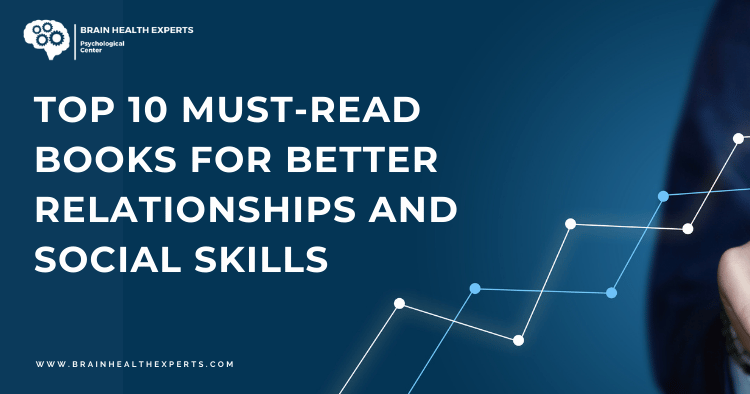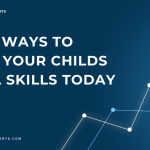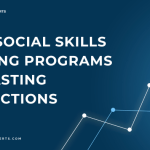- Introduction
- 1. “The 5 Love Languages” by Gary Chapman
- 2. “How to Win Friends and Influence People” by Dale Carnegie
- 3. “Nonviolent Communication” by Marshall B. Rosenberg
- 4. “Attached” by Amir Levine and Rachel Heller
- 5. “The Gifts of Imperfection” by Brené Brown
- 6. “Crucial Conversations” by Patterson, Grenny, McMillan, and Switzler
- 7. “Emotional Intelligence” by Daniel Goleman
- 8. “Daring Greatly” by Brené Brown
- 9. “Mindset: The New Psychology of Success” by Carol S. Dweck
- 10. “Digital Minimalism” by Cal Newport
- Conclusion
- FAQs
Introduction
Building and maintaining healthy relationships is a cornerstone of a fulfilling life. Whether it’s friendships, romantic partnerships, or professional interactions, strong social skills can significantly enhance your personal and professional experiences. This blog post compiles the top 10 must-read books that can help improve your relationships and social skills. Each selection is backed by brain health experts and offers valuable insights backed by research and real-world application.
1. The 5 Love Languages by Gary Chapman
Gary Chapman’s “The 5 Love Languages” is a classic that breaks down how individuals express and receive love in different ways. Chapman identifies five primary love languages:
- Words of Affirmation
- Acts of Service
- Receiving Gifts
- Quality Time
- Physical Touch
Why It’s Essential
Understanding your own love language, as well as that of your partner or friends, can lead to deeper connections and less conflict in relationships. Chapman’s insights can help you articulate your feelings and understand others better.
Learn more about the 5 Love Languages.
2. How to Win Friends and Influence People by Dale Carnegie
Dale Carnegie’s timeless masterpiece, “How to Win Friends and Influence People,” is a must-read for anyone looking to improve their social skills. Published in 1936, its principles remain relevant today.
Key Takeaways
- The importance of showing genuine interest in others.
- Techniques for handling disagreements gracefully.
- The power of a smile and a name.
By applying Carnegie’s principles, you can build rapport and create meaningful connections that last a lifetime.
Discover Carnegie’s Principles.
3. Nonviolent Communication by Marshall B. Rosenberg
Marshall B. Rosenberg’s “Nonviolent Communication” (NVC) teaches readers how to communicate effectively and compassionately.
Core Concepts
- Observation: Distinguishing between observation and evaluation.
- Feelings: Expressing feelings without blame.
- Needs: Identifying needs behind feelings.
- Requests: Making specific and clear requests.
NVC can transform conflict into collaboration and foster deeper understanding in relationships.
4. Attached by Amir Levine and Rachel Heller
“Attached” delves into attachment theory and how it affects our relationships. Authors Amir Levine and Rachel Heller explain the three attachment styles: secure, anxious, and avoidant.
Insights Offered
Understanding your attachment style can help you navigate romantic relationships more effectively and foster better communication.
5. The Gifts of Imperfection by Brené Brown
Brené Brown’s “The Gifts of Imperfection” is a powerful reminder that vulnerability is essential for connection.
Key Themes
- Embracing imperfection.
- Cultivating authenticity.
- Building self-worth.
Brown’s work is grounded in research and personal anecdotes, making it relatable and inspiring.
Check out Brené Brown’s research.
6. Crucial Conversations by Patterson, Grenny, McMillan, and Switzler
“Crucial Conversations” equips readers with tools to handle high-stakes discussions.
Highlights
- Strategies for staying calm and focused.
- Techniques for fostering open dialogue.
- Methods for resolving disagreements respectfully.
These skills are invaluable in both personal and professional settings.
Learn more about Crucial Conversations.
7. Emotional Intelligence by Daniel Goleman
Daniel Goleman’s “Emotional Intelligence” explores the role of emotional intelligence (EQ) in personal and professional success.
Key Takeaways
- Self-awareness and self-regulation.
- Empathy and social skills.
- The impact of EQ on leadership and relationships.
Goleman’s insights help you understand the importance of managing emotions for better interactions.
Understand more about Emotional Intelligence.
8. Daring Greatly by Brené Brown
Another gem by Brené Brown, “Daring Greatly,” focuses on the power of vulnerability and its role in building relationships.
Main Themes
- The courage to be vulnerable.
- How vulnerability fosters connection.
- Overcoming the fear of judgment.
This book encourages readers to embrace their true selves in relationships.
Explore more on Daring Greatly.
9. Mindset: The New Psychology of Success by Carol S. Dweck
Carol Dweck’s “Mindset” introduces the concept of fixed vs. growth mindsets and how it affects relationships and personal development.
Key Concepts
- The importance of a growth mindset in overcoming challenges.
- How mindsets shape relationships and communication.
Adopting a growth mindset can significantly enhance your social interactions and relationships.
10. Digital Minimalism by Cal Newport
In our tech-driven world, “Digital Minimalism” by Cal Newport addresses the impact of technology on our relationships.
Core Ideas
- The importance of setting boundaries with digital devices.
- Strategies for cultivating meaningful connections in a digital age.
This book is essential for anyone looking to improve their social interactions in a technology-saturated environment.
Find out more about Digital Minimalism.
Conclusion
Improving relationships and social skills is a journey that requires continuous learning and practice. The books listed above provide valuable insights and practical tools to help you navigate your interactions with others more effectively. Whether you’re looking to enhance romantic relationships, friendships, or professional connections, these must-reads can significantly impact your life.
FAQs
Q1: How can reading these books improve my relationships?
Reading these books can provide you with practical techniques, insights into human behavior, and a deeper understanding of yourself and others, leading to enhanced communication and connection.
Q2: Are these books suitable for all ages?
Most of these books are suitable for teens and adults. However, some concepts may resonate more with older teens or adults, especially those in romantic relationships or the workplace.
Q3: How do I choose the right book for me?
Consider your specific needs—whether you want to improve romantic relationships, friendships, or professional interactions—and choose a book that addresses those areas.
By exploring these resources, you can take actionable steps toward building healthier, more fulfilling relationships in your life. Happy reading!





